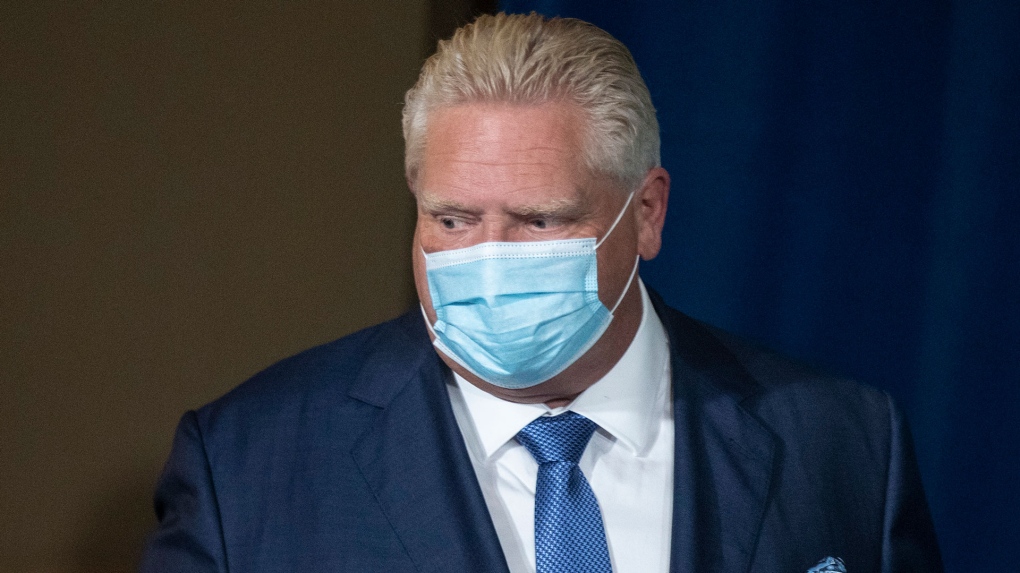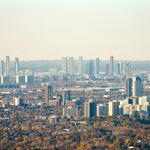What a warm welcome from our Premier!
You are using an out of date browser. It may not display this or other websites correctly.
You should upgrade or use an alternative browser.
You should upgrade or use an alternative browser.
Premier Doug Ford's Ontario
- Thread starter animatronic
- Start date
W. K. Lis
Superstar
Thinker
Active Member
Typical, unscripted verbal diarrhea, I have heard him have a go at vulnerable people at city hall, asking why a physical disabled person didn’t have a job. I was perplexed and told him it was not any of his GD business why this person was unable to hold a job. Well looks like someone needs to tell him to stop giving those impromptu speeches.What a warm welcome from our Premier!
tiffer24
Senior Member
Double down, Doug, double down.
AlvinofDiaspar
Moderator
Double down, Doug, double down.
He always talks about his phone calls whenever he messed up. I can't help but notice someone who shuttered the legislature for an extended period of time is talking about "hard working" though.
AoD
Last edited:
W. K. Lis
Superstar
If not able to work as a result of conflicts (IE. Afghanistan), Doug Ford does not want you.
W. K. Lis
Superstar
When does Doug Ford do real work at Queen's Park? Seems to be either absent from work or on vacation many times. Worse than those he is complaining about.
Last edited:
DirectionNorth
Active Member
And we pay this man a $210,000 salary!
Northern Light
Superstar
An excellent thread here by J.Robson on why immigrants and refugees are rarely a financial burden for the state, or even eligible for OW:
I'll just post the first post in the thread, for those lacking previews:

I'll just post the first post in the thread, for those lacking previews:
Thinker
Active Member
So Doug Ford gives out his phone number to new immigrants only? OR is he getting his information at his usual place of public opinion.... Tim Hortons?And we pay this man a $210,000 salary!
It’s in then”Welcome to Ontario” packageSo Doug Ford gives out his phone number to new immigrants only? OR is he getting his information at his usual place of public opinion.... Tim Hortons?
W. K. Lis
Superstar
By the size of him, don't think Doug Ford would be doing this...
Newfoundland and Labrador says soft drink tax coming in 2022 will be Canada's first
From link.In an effort to boost health outcomes in an ailing province, the Newfoundland and Labrador government unveiled details Tuesday of what it says will be the country's first tax specifically targeting sugary drinks.
Finance Minister Siobhan Coady told reporters the tax will hike prices on drinks with added sugars by 20 cents a litre beginning in September 2022. The government expects the tax to bring in roughly $9 million a year, she said. The tax will be applied on top of any provincial sales tax.
"Over half of Newfoundlanders and Labradorian residents aged 12 years of age and over have at least one chronic disease, and many people live with more than one," Coady said. The province's tax, if passed in the legislature, will be the first in Canada to specifically target sugar-sweetened beverages, she added.
The provincial government first announced its intent to tax sweet drinks in its 2021-22 budget last May, but the details had not been worked out.
In a media briefing Tuesday before Coady's announcement, officials said the tax will apply to beverages containing added sweeteners such as sugar, corn syrup, fructose and agave nectar. Alcoholic beverages will be excluded — they're already subject to extensive taxing and 20 cents a litre is unlikely to decrease consumption. Chocolate milk is also exempt, as are diet drinks containing artificial sweeteners, infant formulas, yogurt drinks and nutritional meal replacement beverages.
Ready-to-drink beverages, concentrated drink mixtures and dispensed beverages like slushies and fountain sodas will all be subject to the tax. Consumers will pay an extra 20 cents per litre or, in the case of concentrates, 20 cents per every litre that can be produced after mixing.
The tax is targeted toward consumers and will be reflected in the item's shelf price, officials said.
Certain sweet drinks are now taxed in British Columbia, after the government in April eliminated its provincial sales tax exemption for carbonated beverages containing sugar, natural sweeteners or artificial sweeteners. The United Kingdom employs what it calls a soft drink industry levy, which taxes the manufacturer rather than the consumer.
Coady said the goal of the tax is to improve residents' health and it fits with the government’s effort to make Newfoundland and Labrador one of Canada's healthiest provinces by 2031. "Newfoundland and Labrador spends an estimated 2.8 per cent of its total annual food and beverage expenditures on sugar-sweetened beverages," she said. "This is the highest in Canada."
But many residents may be knocking back soft drinks because they're the most accessible option, said Atanu Sarkar, an associate professor of environmental and occupational health in Memorial University's faculty of medicine.
Newfoundland and Labrador has a water insecurity problem: the province's website currently lists 16 pages of boil water advisories, some of which have been in place for over a decade, Sarkar noted. People in those towns could drink bottled water, but it's often far more expensive than a bottle of soda pop.
He said it's not clear whether an extra 20 cents a litre will change habits in communities that have been without clean water for years and are likely very used to the cheap, sweet drinks.
This report by The Canadian Press was first published Oct. 19, 2021.
Sarah Smellie, The Canadian Press
Thinker
Active Member
Let's not judge man by the size of his gut. No doubt someone in the sugary beverage industry will make a party contribution.By the size of him, don't think Doug Ford would be doing this...
Newfoundland and Labrador says soft drink tax coming in 2022 will be Canada's first
From link.
Thinker
Active Member
So his minister of education could have told him about "remote education" or "the Zoom thing"

 toronto.ctvnews.ca
toronto.ctvnews.ca
Guess being bilingual is not his thing either.

Doug Ford says he stopped taking French lessons for safety reasons during pandemic
Ontario Premier Doug Ford says he stopped taking French lessons as a safety precaution during the pandemic but has promised to do everything he can to learn the language.
Guess being bilingual is not his thing either.





/https://www.thestar.com/content/dam/thestar/opinion/editorial_cartoon/2021/10/18/michael-de-adder-keeping-apart/michael_de_adder_keeping_apart.jpg)